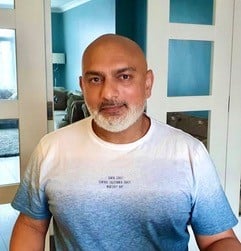Not to mention that there are now more men’s group and campaigns such as Good to Talk. Raising awareness around football. An interesting idea is that there can be more storylines in major tv shows and series with main characters seeking help to bring it into the mainstream.
What can people do to get involved with helping others or the mental health industry as a whole?
People can volunteer their time or expertise and services to help others in difficulty, especially in these challenging times.
Or they may offer their support by plugging in charities such as MIND on their social media. There is the option to maybe donate money to good causes.
Which potential improvements or changes would you like to see that could help facilitate a more nurturing workplace and improve mental health?
To my knowledge, most reputable firms now have an Employee Assistance Programme, offering support to those with mental health challenges.
There is also Able Futures, funded by the Department of Work and Pensions. Employers can refer employees for on-going, confidential support.
Employers can display material to ‘normalise’ help for issues. They need to encourage staff to talk to HR or OH if they have any potential concerns. Nipping things in the bud is often the better option.









